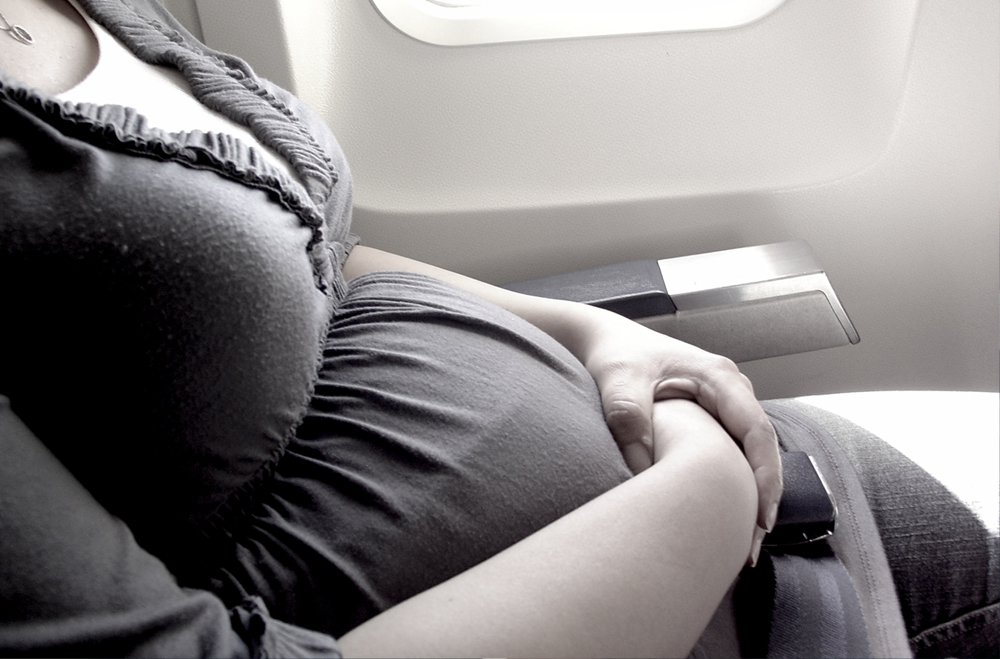With many mums-to-be unsure as to the advisability of flying during the gestation period, Dr Raymond Choy, general practitioner for Raffles Medical at Changi Airport, provides some informed advice on safety issues and useful preparations to make before you step on board.
Is it safe for a pregnant woman to fly? When is the safest time to travel?
Regardless of the mode of transport, it is generally considered safe for healthy pregnant women without complications to travel domestically or internationally. Most airlines allow women with uncomplicated pregnancies to fly up to 36 weeks of gestation. Hence, it is safe to fly before 36 weeks of pregnancy. However, it is advisable to consult a healthcare provider or obstetrician four weeks before departure.
Those with complicated pregnancies such as placental-related issues, cervical instability or at any risk of pre-term labour/miscarriage are advised not to travel. Pregnant ladies of 36 weeks of gestation and above should avoid travelling in case of sudden changes that require medical attention. The safest time to travel during pregnancy is during the second trimester (18-24 weeks) as it carries the lowest risk of miscarriage and pre-term labour.
According to the Royal College of Obstetricians and Gynaecologists, UK, the most serious risk for pregnant women travelling at 35,000ft is premature labour. It can impose significant risks to the mother and baby, possibly due to high altitude and lack of medical equipment on board should any complications arise. Medical conditions such as anaemia, recent haemorrhage, heart and lung conditions, and recent bone fractures, may complicate the pregnancy, potentially leading to complications during air travel.
What precautions can mothers-to-be take if they have to fly?
Pregnant ladies should consider the duration of the flight. When travelling by air, pregnant women have a higher risk of developing blood clots, also known as deep-vein thrombosis (DVT). However, moving regularly on board, for example, walking around and stretching the legs, can reduce this. The risk of DVT can also be reduced if the expectant mother is well hydrated. Wearing compression stockings might help to reduce the risks. Risks of motion or travel sickness may increase in pregnant women during air travel, leading to dehydration, which can be detrimental to the mother, as well as the baby.
If the expectant mother has a history of miscarriage or ectopic pregnancy it would be advisable to have an ultrasound scan performed to confirm the location and viability of the pregnancy, as well as the unborn baby’s health prior to travelling.
Pregnant women are more susceptible to various infectious diseases due to the altered immune response. Food-borne illnesses such as toxoplasmosis and listeriosis may cause spontaneous abortion or stillbirth. Hence, when travelling it is important that unpasteurised dairy products, soft cheeses and undercooked meat are avoided. Also, pregnant ladies can be more vulnerable to dehydration caused by traveller’s diarrhoea or food poisoning.
When travelling to crowded places, pregnant women are more susceptible to respiratory infections such as influenza, which may potentially cause complications to the pregnancy itself. Hence, pregnant women should consider a flu vaccination when planning for travel.
Which seats on a plane are the best for pregnant women to sit on?
It is always important to make sure that reserved seats are comfortable. If possible, expectant mothers are recommended to book themselves in ‘business’ or ‘premium economy’ seats as they have more spacious legroom for better stretching and lower-limb circulation. Some prefer to sit near the aisle, as it is easier and more convenient to walk and gain access to the restroom; whereas some prefer a window seat to minimise early-pregnancy or motion sickness. Forward seating on the aircraft will ensure a better air circulation and it is easier to get on and off the aircraft.
What medication should mothers carry on board?
Generally, pregnant women are advised to carry regular prescribed medication in their hand luggage. Also, it is recommended that they should bring a written prescription and a letter from their physician stating why such medication is needed. Prescribed antihistamines can also be carried for allergy, common cold and motion sickness.
Any other useful information?
Expectant mothers are generally safe to travel overseas provided they are given appropriate medical advice on the risks. They should follow that advice in order to minimise potential risks. Pregnant women should also know where to seek medical attention, especially when they are abroad. The basic rule of thumb is that safety always comes first.



